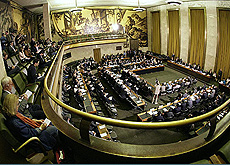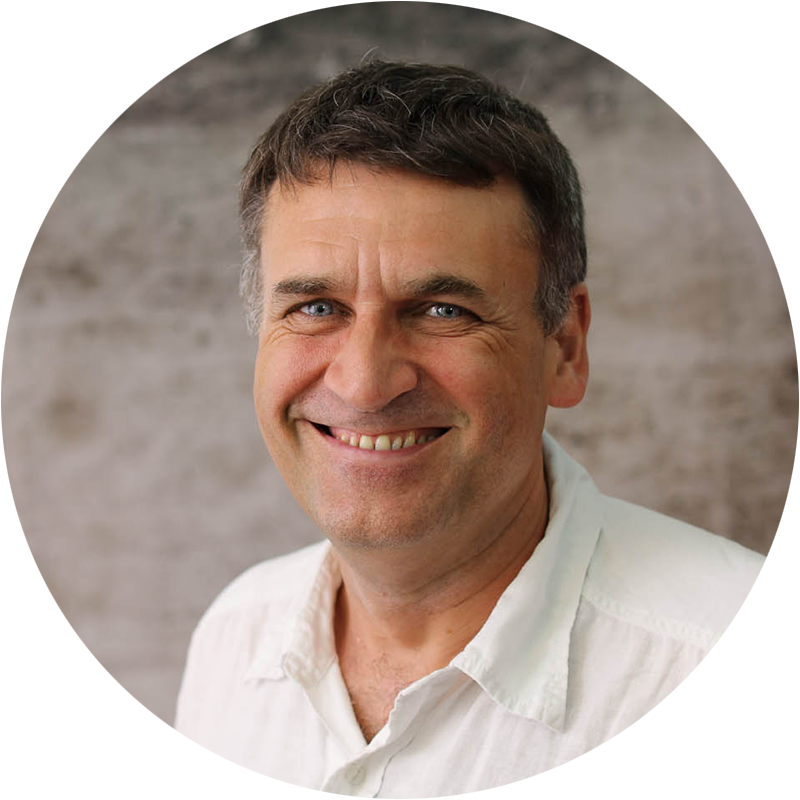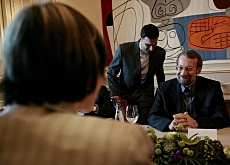Swiss backstage diplomacy grows over Iran

Switzerland, which represents the United States' interests in Iran, may be about to take on an increased role in the ongoing Iran nuclear crisis.
Iran has asked Bern to organise an international conference to resolve the standoff with the West over Tehran’s nuclear programme, it has been reported.
The Swiss foreign ministry and Tehran have so far declined to comment on the report which appeared in the Swiss newspaper, the NZZ am Sonntag.
There has, however, been a scurry of diplomatic activity between the two countries in recent months.
The letter from Iran’s President Mahmoud Ahmadinejad to George Bush proposing “new solutions” to their differences in early May went via the Swiss embassy in Tehran.
Switzerland has represented the US in Iran since 1981. The US and Iran broke off diplomatic relations in 1980 after US embassy staff were taken hostage in Tehran, not long after the Islamic revolution.
This “good office” role is much appreciated. During a visit to Switzerland earlier this month, Iran’s chief nuclear negotiator, Ali Larijani, said Switzerland had always held a “correct and balanced position” on international and regional matters.
Positive image
“Switzerland enjoys an extremely positive image in Iran,” Mohammad-Reza Djalili, professor at the Graduate Institute of International Studies in Geneva, told swissinfo.
This image comes in part, but not exclusively, from the country’s “good office” policy. “In the past before the revolution, many of Iran’s elite, including [the former leader] the Shah, studied in Switzerland,” said Djalili, who added that he wasn’t surprised by Tehran’s request to Switzerland.
“Besides, informal meetings in Geneva between Iranian and Western representatives have favourably prepared the ground,” he said.
According to the NZZ am Sonntag article, Iranian Foreign Minister Manouchehr Mottaki made the request.
Switzerland had previously offered its assistance to find a negotiated outcome to the Iranian nuclear crisis. The offer was repeated at the meeting with Larijani in early July.
The West accuses Iran of seeking to develop atomic weapons and is demanding that it suspend a uranium enrichment programme that Tehran says is only to produce electricity.
Pressure
Pressure on Iran over the issue has been mounting. The United Nations Security Council on Monday demanded Iran suspend its nuclear activities by the end of August or face the threat of sanctions.
The five permanent members of the Security Council (the US, Britain, China, France and Russia) and Germany have also offered it incentives to give up the programme.
Tehran has to give its answer by mid-August.
“The Iranian government is trying to see if the dossier can now be taken out of the framework of the Security Council, especially now, in my opinion, as in the past weeks the Russian and Chinese positions have become closer to the western countries,” explained Djalili.
In other words, it would seem that Tehran is becoming increasingly isolated and is looking for support, which could explain the idea for the international conference, he said.
It has been reported that Iran wants invitations to be extended beyond the permanent five and to include other countries such as Pakistan, India and Brazil.
“I believe, however, that Tehran is deluding itself. When the UN General Assembly decided to send the nuclear dossier to the Security Council, only three countries voted against it [Syria, Cuba and Venezuela],” said Djalili.
He says the five permanent members probably do not want other countries involved in a long negotiating process.
“The political conditions have not come together,” Djalili told swissinfo. “I don’t believe that such a conference will, at least for now, be on the agenda.”
swissinfo, Daniele Mariani
Apart from representing the United States in Iran, Switzerland also hold three similar good offices: since 1979 it has represented Iran in Egypt, since 1961 the US in Cuba, and since 1991, Cuba in the US.
Switzerland’s first role in this diplomatic area was in 1870, when it represented Bavaria and Baden in France in the Franco-Prussian war of 1870-1.
During the Second World War, Switzerland represented the interests of 35 states and after 1945, the number rose to around 70.
Iran opened an embassy in Bern in 1917.
In 1919 Switzerland opened a consulate general in Tehran.
In 2005 there were 187 Swiss citizens living in Iran.
At the end of 2004, 3,801 Iranians were living in Switzerland.

In compliance with the JTI standards
More: SWI swissinfo.ch certified by the Journalism Trust Initiative


You can find an overview of ongoing debates with our journalists here. Please join us!
If you want to start a conversation about a topic raised in this article or want to report factual errors, email us at english@swissinfo.ch.